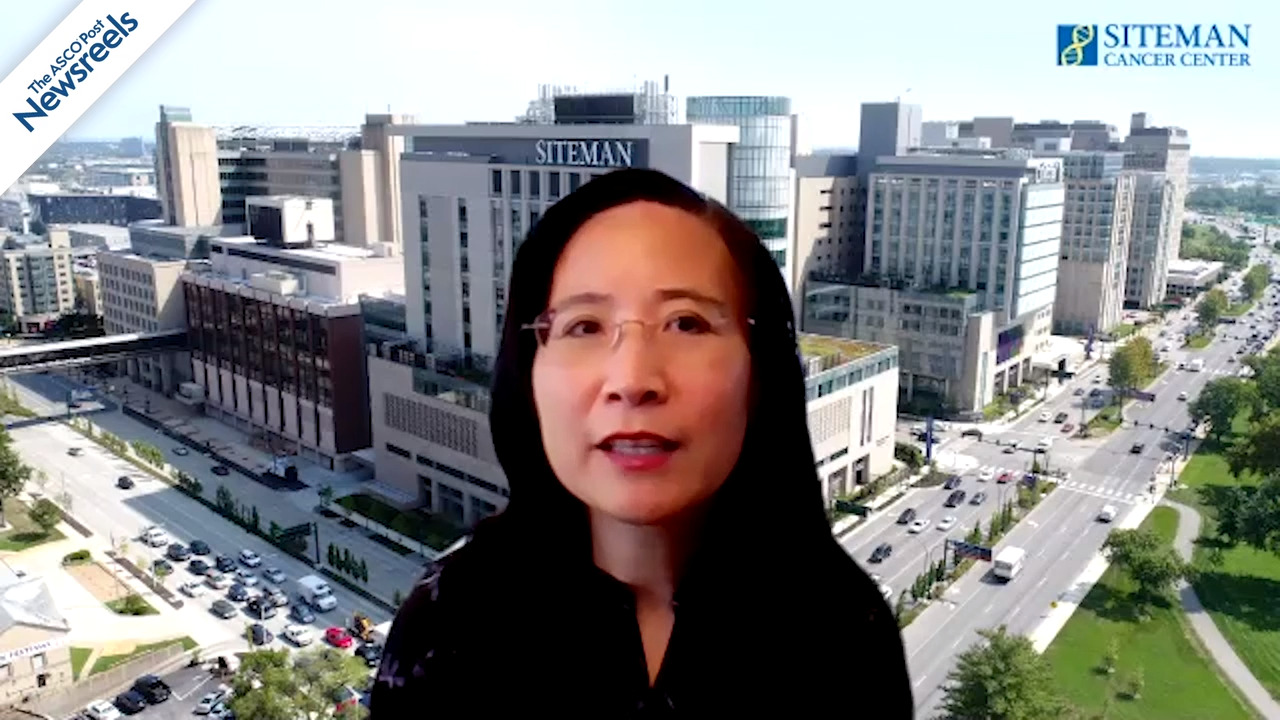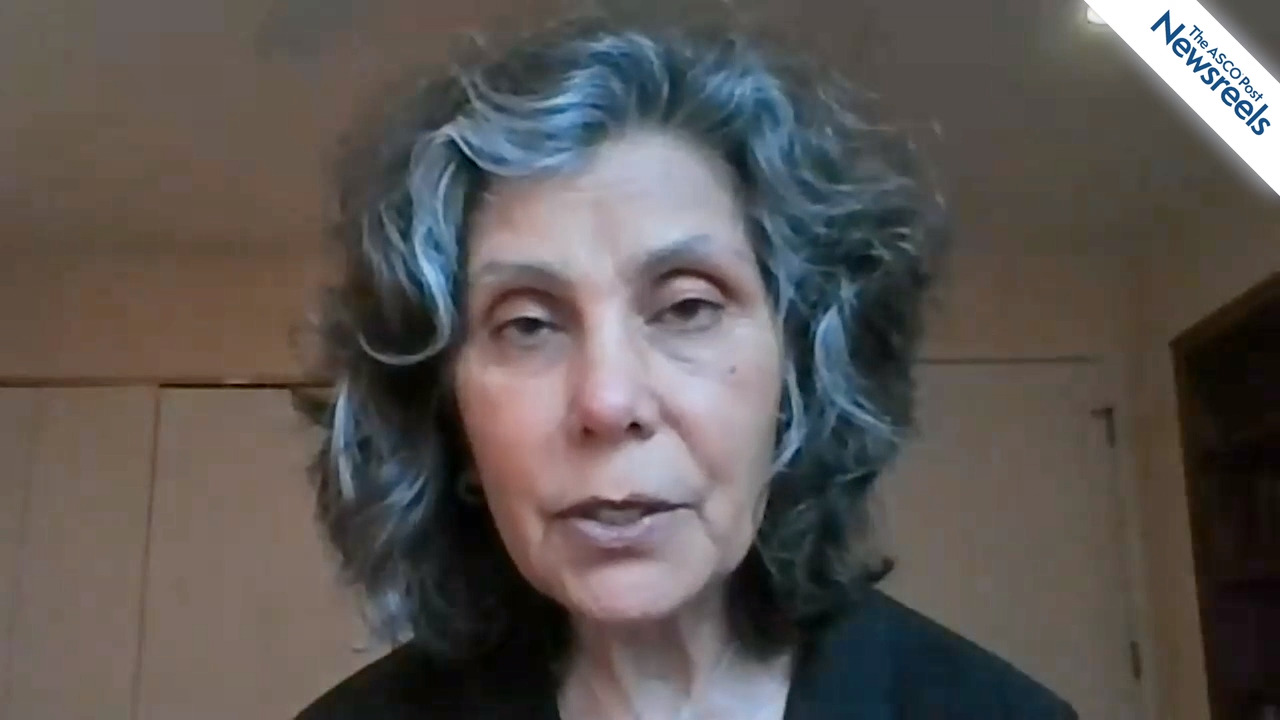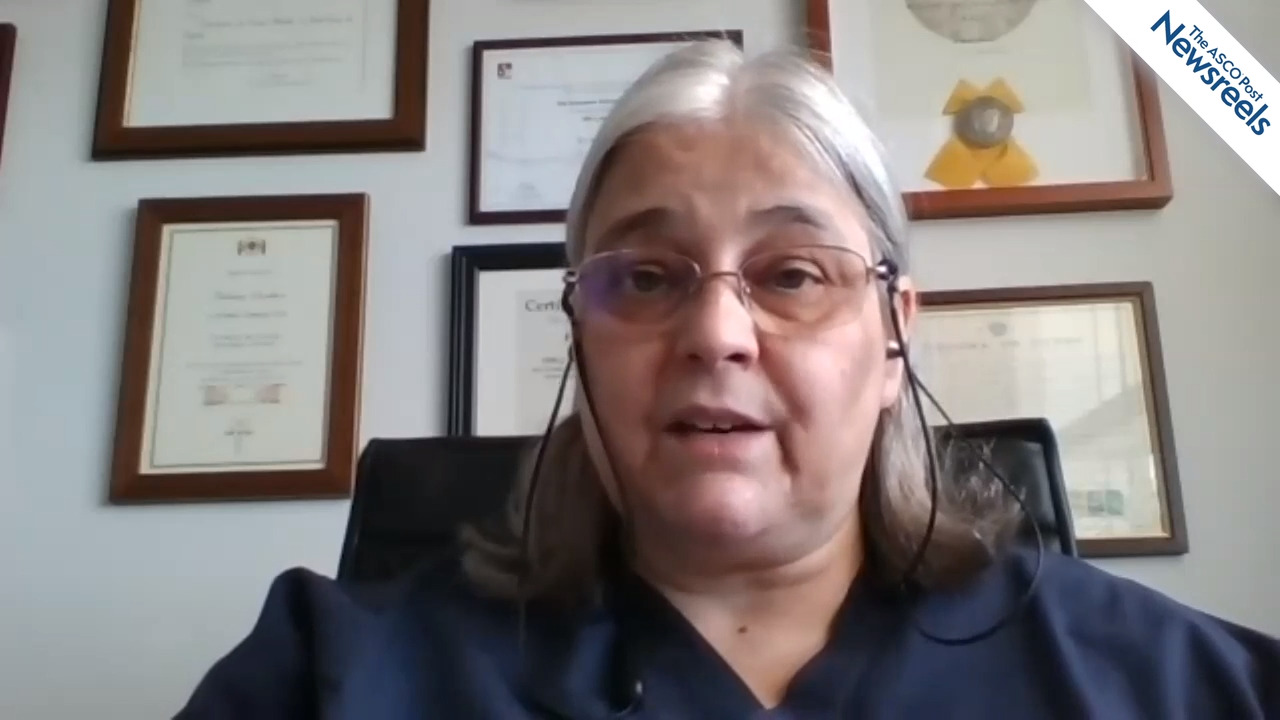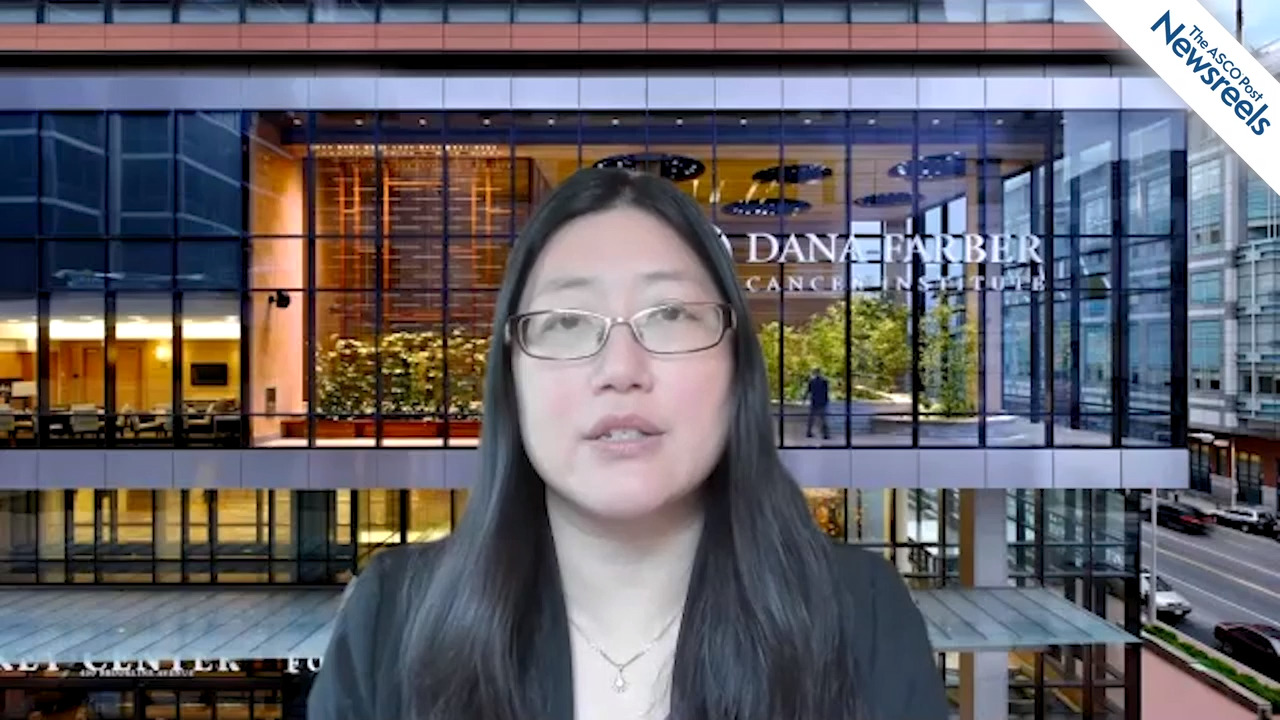Comprehensive Overview of How to Start or Improve a Breast Cancer Unit on the Global Stage
Breast cancer is the leading cause of cancer death among women worldwide. As populations age, the incidence of cancer inevitably increases—the World Health Organization has predicted a dramatic increase in global breast cancer cases during the next 15 years. Moreover, breast cancer is increasing in ...
Sacituzumab Govitecan-hziy for Previously Treated Metastatic Triple-Negative Breast Cancer
On April 22, 2020, the antibody-drug conjugate sacituzumab govitecan-hziy was granted accelerated approval for treatment of adult patients with metastatic triple-negative breast cancer who have received at least two prior therapies for metastatic disease.1,2 Supporting Efficacy Data Approval was...
Study Explores Adding Trastuzumab to Radiotherapy for Women With HER2-Positive DCIS
The addition of trastuzumab to radiotherapy did not reach the protocol objective of a 36% reduction in the ipsilateral breast tumor recurrence rate for women with HER2-positive ductal carcinoma in situ (DCIS) in the NRG Oncology clinical trial NSABP B-43. The trial did find a modest (19%) reduction ...
Sara A. Hurvitz, MD, on Breast Cancer: Four Major Studies on Trastuzumab, Pertuzumab, Anthracyclines, and Chemotherapy De-escalation
Sara A. Hurvitz, MD, of UCLA’s David Geffen School of Medicine, summarizes four breast cancer studies: KATHERINE, on adjuvant trastuzumab vs trastuzumab in patients with residual invasive disease after neoadjuvant therapy for HER2-positive breast cancer; KAITLIN, on trastuzumab emtansine and pertuzumab vs trastuzumab, pertuzumab, and taxane after anthracyclines as adjuvant therapy for high-risk HER2-positive early breast cancer; TRAIN-2, on neoadjuvant chemotherapy with or without anthracyclines for HER2-positive disease; and PHERGain, on chemotherapy de-escalation using an FDG-PET/CT and pathologic response–adapted strategy in HER2-positive early breast cancer (Abstracts 500, 501, 502, and 503).
Cynthia X. Ma, MD, PhD, on Breast Cancer: Neoadjuvant Endocrine Treatment for ER-Positive, HER2-Negative Disease
Cynthia X. Ma, MD, PhD, of Washington University, discusses results from the ALTERNATE trial, which showed neither fulvestrant nor fulvestrant plus anastrozole significantly improved endocrine-sensitive disease rate compared with anastrozole alone in postmenopausal patients with locally advanced estrogen receptor–positive, HER2-negative breast cancer (Abstract 504).
Remote Pre- and Posttest Genetic Counseling for Breast and Ovarian Cancer Risk
Genetic testing for cancer risk can significantly improve the prevention or treatment of hereditary cancers, but studies have shown that people who might have a genetic risk often don't get tested. A collaborative team of researchers have tested a possible solution through a clinical trial aimed at ...
Renowned Researcher and Surgeon Helps to Transform Treatment of Breast Cancer
Although ‘paradigm shifts’ are frequently referenced in oncology, these are really few and far between. They occur when new data either partially invalidate previously accepted theory or are at complete odds with the existing paradigm. Moving away from the Halsted radical mastectomy, a standard of ...
Seema A. Khan, MD, MPH, on Metastatic Breast Cancer: Systemic vs Locoregional Therapies
Seema A. Khan, MD, MPH, of the Lynn Sage Comprehensive Breast Center, discusses phase III trial results showing that in newly diagnosed metastatic stage IV breast cancer, locoregional treatment of the primary tumor did not offer a greater survival benefit than systemic therapy (Abstract LBA2).
Expert in Clinical Trial Methodology Makes His Mark in Genitourinary Cancer
In 2019, at the ASCO Annual Meeting, Ian Tannock, MD, PhD, DSc, FASCO, was honored with the Allen S. Lichter Visionary Award for his contributions to the fields of genitourinary and breast cancers as well as his efforts to optimize clinical trial design. The title of his lecture was “Clinical...
Love of Science and a Family Tragedy Set the Course for This Breast Cancer Researcher
When oncology luminary Joyce A. O’Shaughnessy, MD, was in her early teens, her youngest sister, Teri, developed acute lymphocytic leukemia at age 5. Dr. O’Shaughnessy, the oldest of four girls, recalled that her sister’s struggle with the disease had a profound effect on her worldview. “Teri went...
Early Local Therapy Did Not Extend Survival in Patients With Newly Diagnosed Metastatic Breast Cancer
Women who present at diagnosis with advanced breast cancer have faced an unanswered question: will local therapy, consisting of surgery and radiation to the tumor in the breast, prolong survival compared to the traditional treatment of systemic treatment alone? Now, data from the randomized phase...
Fatima Cardoso, MD, on Breast Cancer: MammaPrint as Guidance for Adjuvant Chemotherapy
Fatima Cardoso, MD, of Lisbon’s Champalimaud Cancer Center, discusses the long-term results of MINDACT, a large prospective trial showing the clinical utility of the 70-gene signature MammaPrint for adjuvant chemotherapy decision-making. The primary distant metastasis–free survival endpoint at 5 years continued to be met in chemotherapy-untreated women with clinical-high/genomic-low risk disease (Abstract 506).
Nancy U. Lin, MD, on Metastatic Breast Cancer: Tucatinib, Trastuzumab, and Capecitabine
Nancy U. Lin, MD, of Dana-Farber Cancer Institute, discusses the HER2CLIMB study of patients with previously treated HER2-positive metastatic breast cancer that had metastasized to the brain. Adding tucatinib to trastuzumab and capecitabine doubled the intracranial response rate and reduced the risk of death by nearly half, compared with trastuzumab plus capecitabine (Abstract 1005).
Tucatinib Combination in Previously Treated HER2-Positive Metastatic Breast Cancer With Brain Metastases
In an analysis of the pivotal phase III HER2CLIMB trial to be reported at the ASCO20 Virtual Scientific Program, Nancy U. Lin, MD, and colleagues found that tucatinib, a small-molecule tyrosine kinase inhibitor that is highly selective for HER2, plus trastuzumab/capecitabine significantly improved...
ESMO Breast 2020: Novel Biomarkers May Predict Immunotherapy Benefit in Metastatic Breast Cancer
Two novel biomarkers have been found to correlate with improved outcomes with immunotherapy in metastatic breast cancer and may help to identify the patients most likely to benefit from this treatment, according to exploratory studies reported at the European Society for Medical Oncology (ESMO)...
ESMO Breast 2020: Study Finds Physical Activity, Supportive Care to Relieve Cancer-Related Fatigue May Be Underutilized by Breast Cancer Survivors
Cancer-related fatigue is a prevalent and potentially persistent issue among breast cancer survivors. A study presented by Di Meglio et al at the ESMO Breast Cancer Virtual Meeting 2020 (Abstract 183O) has now shown that existing recommendations and proven strategies for reducing fatigue—which can...
ESMO Breast 2020: Ipatasertib/Paclitaxel vs Paclitaxel Alone in Advanced Triple-Negative Breast Cancer
Final analysis of the LOTUS trial has shown numerically longer overall survival with ipatasertib plus paclitaxel vs placebo plus paclitaxel in patients with inoperable locally advanced/metastatic triple-negative breast cancer. In all biomarker-defined subgroups (PTEN normal or low, PIK3CA/AKT1/PTEN ...
ESMO Breast 2020: Patient Preference for Subcutaneous vs Intravenous Pertuzumab/Trastuzumab for HER2-Positive Early Breast Cancer
At the European Society for Medical Oncology (ESMO) Breast Cancer Virtual Meeting 2020, Joyce O’Shaughnessy, MD, of Baylor University Medical Center, reported results from an interim analysis of the PHranceSCa study (Abstract 80O). The study investigators found that over 80% of patients preferred...
ASBrS 2020: Analysis of Women Younger Than 40 With Breast Cancer
Patients with breast cancer younger than 40 generally present with a characteristic profile—later-stage disease and more aggressive tumors with poorer prognosis—according to findings from a new study analyzing one of the largest patient data sets compiled to investigate age-related breast cancer...
ASBrS 2020: Phone Outreach and Scheduling Assistance Boost Mammography Uptake at an Urban Safety-Net Hospital
Telephone outreach coupled with scheduling assistance significantly increased screening mammography setup and follow-through in a population characterized by low rates of screening mammography and high rates of advanced breast cancer at diagnosis. These are findings from a new study conducted by...
ASBrS 2020: Cosmetic Outcomes With Lumpectomy for Multiple Ipsilateral Breast Cancer
The majority of women with multiple tumors in a single breast reported good or excellent satisfaction with the cosmetic results of lumpectomy, despite loss of significant breast volume and often multiple incisions. These findings are from an ongoing multicenter prospective trial examining the...
Tucatinib in Previously Treated HER2-Positive Metastatic Breast Cancer
On April 17, 2020, tucatinib was approved for use in combination with trastuzumab and capecitabine for treatment of adult patients with advanced unresectable or metastatic HER2-positive breast cancer. These patients included those with brain metastases and those who have received one or more prior...
Genetics May Soon Guide Targeted Treatment of Brain Metastases
Genetic mapping of brain metastases, in the laboratory of Priscilla Brastianos, MD, Director of the Central Nervous System Metastasis Center at Massachusetts General Hospital/Harvard Medical School, and Scott Carter, PhD, at the Harvard School of Public Health, is yielding findings that could...
Expert Point of View: Pamela N. Munster, MD
Formal I-SPY 2 trial discussant, Pamela N. Munster, MD, Professor in the Department of Medicine, University of California, San Francisco, found the study promising but said confirmatory trials are needed. “What we know so far in preoperative therapy for breast cancer is that pathologic complete...
Selected Poster Presentations on Cancer Therapeutics and More
Although the live 2020 National Comprehensive Cancer Network (NCCN) Annual Conference was canceled, more than 100 posters scheduled for presentation are now available online, as part of the NCCN 2020 Virtual Annual Conference. The ASCO Post has summarized some of the clinical trial updates we found ...
Does Text Messaging Support Adherence to Adjuvant Aromatase Inhibitor Therapy in Women With Early-Stage Breast Cancer?
In the SWOG S1105 trial reported in the Journal of Clinical Oncology, Dawn L. Hershman, MD, MS, and colleagues found that a text message intervention did not reduce the rate of early discontinuation of adjuvant aromatase inhibitor therapy in postmenopausal women with early-stage breast cancer....
Jennifer K. Litton, MD, on Breast Cancer: EMBRACA Trial on Talazoparib vs Chemotherapy
Jennifer K. Litton, MD, of The University of Texas MD Anderson Cancer Center, discusses study results of talazoparib vs chemotherapy in patients with BRCA1/2-mutated HER2-negative advanced breast cancer. In this final analysis, patient-reported outcomes continued to favor the PARP inhibitor, even though it did not improve overall survival compared with chemotherapy (Abstract CT071).
Pooled Analysis Supports Benefit of Dual HER2-Targeted Therapy, but Questions Remain
In the treatment of HER2-positive early breast cancer, patients who receive dual HER2-targeted therapy in both the neoadjuvant and adjuvant settings are less likely to experience recurrence than those who received dual therapy only as neoadjuvant treatment, according to a pooled analysis of...
KEYNOTE-522: A Biomarker Resource for PD-1 Inhibition in Early Triple-Negative Breast Cancer
In the phase III KEYNOTE-522 trial reported in The New England Journal of Medicine and reviewed in this issue of The ASCO Post, Schmid et al1 found that the addition of pembrolizumab to neoadjuvant chemotherapy in stage II or III triple-negative breast cancer significantly improved the pathologic...
Neoadjuvant and Adjuvant Pembrolizumab Improves Outcomes in Early Triple-Negative Breast Cancer
As reported in The New England Journal of Medicine by Peter Schmid, MD, PhD, of Barts Cancer Institute, Queen Mary University of London, and colleagues, analyses in the phase III KEYNOTE-522 trial have shown that the addition of pembrolizumab to neoadjuvant chemotherapy and the use of adjuvant...
Expert Point of View: Virginia Kaklamani, MD, DSc, and Minetta Liu, MD
Virginia Kaklamani, MD, DSc, Professor of Medicine and Head of the Breast Cancer Program at UT Health San Antonio MD Anderson Cancer Center, moderated a press conference where Milan Radovich, PhD, reported the robust ability of circulating tumor DNA (ctDNA) and circulating tumor cells to predict...
Studies Show Circulating Tumor Material May Predict Outcomes After Neoadjuvant Therapy for Breast Cancer
In early triple-negative breast cancer, the presence of circulating tumor DNA (ctDNA) and circulating tumor cells after neoadjuvant chemotherapy may enable risk stratification of patients for disease recurrence and may predict outcomes, according to a preplanned correlative analysis of the phase II ...
Joint Guideline Sheds Light on Management of Hereditary Breast Cancer
As germline genetic testing becomes more widespread among patients with breast cancer, recommendations for the appropriate management of patients with hereditary breast cancer are needed. Until now, no ASCO guideline has addressed the management of hereditary breast cancer, even for carriers of...
Vascular Imaging for Detection of Breast Cancer: Best of Two Worlds?
For breast imaging, contrast-enhanced mammography, which uses the anatomic imaging of a mammogram in addition to imaging neovascularity, can offer the overall screening capability of standard mammography and the sensitivity of magnetic resonance imaging (MRI) at a fraction of the cost of MRI,...
Can Breast Cancer Surgery Be Eliminated in ‘Exceptional Responders’ to Neoadjuvant Therapy?
Can patients with breast cancer who achieve an “exceptional response” to neoadjuvant therapy safely forgo surgery? That is a question being seriously explored in multinational trials. “We’ve known for a long time that we can eliminate disease in many patients if they have chemosensitive tumors....
Steven J. O’Day, MD, on Triple-Negative Breast Cancer: Clinical Benefit With Pembrolizumab Plus Imprime PGG
Steven J. O’Day, MD, of the John Wayne Cancer Institute, discusses phase II results for the combination of pembrolizumab with a novel innate immune activator, Imprime PGG, as second-line treatment for patients with metastatic triple-negative breast cancer ( Abstract CT073).
FAST-Forward Trial: Long-Term Outcomes With Adjuvant Hypofractionated Radiotherapy for 1 vs 3 Weeks in Early Breast Cancer
As reported in The Lancet by Brunt et al, 5-year findings from the phase III FAST-Forward trial indicated that adjuvant radiotherapy with 26 Gy in 5 fractions over 1 week was noninferior to 40 Gy in 15 fractions over 3 weeks in preventing local tumor relapse in women with early-stage breast ...
Abemaciclib/Fulvestrant/Trastuzumab for Patients With Previously Treated HR-Positive, HER2-Positive Advanced Breast Cancer
In the phase II monarcHER trial reported in The Lancet Oncology, Sara M. Tolaney, MD, and colleagues found that the combination of abemaciclib, fulvestrant, and trastuzumab prolonged progression-free survival vs trastuzumab plus standard-of-care chemotherapy in patients with previously treated...
Lajos Pusztai, MD, PhD, on Breast Cancer: I-SPY2 Trial on Durvalumab, Olaparib, and Paclitaxel
Lajos Pusztai, MD, PhD, of Yale Cancer Center, discusses study results on durvalumab in combination with olaparib and paclitaxel as neoadjuvant treatment in patients with high-risk HER2-negative stage II/III breast cancer. Compared with patients who received chemotherapy alone, the combination improved pathologic complete response, even in women with triple-negative breast cancer (Abstract CT011).
Avoiding Use of Prophylactic Peg-filgrastim During Paclitaxel Treatment in Dose-Dense Chemotherapy for Breast Cancer
In a phase II study reported in the Journal of Clinical Oncology, Vaz-Luis et al found that the use of a prespecified algorithm enabled the avoidance of routine peg-filgrastim prophylaxis during the paclitaxel portion of neoadjuvant or adjuvant treatment with dose-dense...
AACR 2020: I-SPY2 Trial: Durvalumab/Olaparib/Paclitaxel ‘Graduates’ in HER2-Negative Breast Cancer
The I-SPY2 trial found that the combination of the checkpoint inhibitor durvalumab, the PARP inhibitor olaparib, and the taxane paclitaxel followed by doxorubicin/cyclophosphamide as neoadjuvant therapy improved pathologic complete responses vs paclitaxel followed by doxorubicin/cyclophosphamide...
AACR 2020: Final Overall Survival Results From the Phase III EMBRACA Trial
New data from the phase III EMBRACA trial showed the poly (ADP-ribose) polymerase (PARP) inhibitor talazoparib did not produce a statistically significant overall survival benefit for patients with locally advanced or metastatic HER2-negative germline BRCA-mutated breast cancer. Most patients...
21-Gene Assay Recurrence Score and Risk of Locoregional Recurrence in Hormone Receptor–Positive, Node-Positive Breast Cancer
A retrospective analysis from the Southwest Oncology Group S8814 trial, reported by Wendy A. Woodward, MD, PhD, of the Department of Radiation Oncology, The University of Texas MD Anderson Cancer Center, and colleagues in JAMA Oncology,1 showed that a low 21-gene assay recurrence score was...
ASCENT Study Halted: Efficacy Shown Across Multiple Study Endpoints in Triple-Negative Breast Cancer
The phase III confirmatory ASCENT study of the antibody drug-conjugate sacituzumab govitecan will be stopped based on efficacy across multiple study endpoints following unanimous recommendation from the independent data safety monitoring committee, according to a news release issued earlier this...
Beyond CDK4/6 Inhibitors: What Subsequent Treatment Is Best?
Inhibitors of cyclin-dependent kinases 4 and 6 (CDK4/6) have changed the natural history of hormone receptor–positive metastatic breast cancer. While median progression-free survival on these drugs is approximately 27 months, the disease eventually progresses and clinicians must choose a subsequent ...
More Antibody-Drug Conjugates on the Horizon for Breast Cancer
Novel antibody-drug conjugates that target actionable cell-surface markers in metastatic breast cancer will soon expand the utility of the class that already includes ado-trastuzumab emtansine (T-DM1), according to two speakers at the 2020 Miami Breast Cancer Conference. These new agents were...
What’s the Current Status of Neoadjuvant Immunotherapy?
For several tumor types, can the successes achieved with immunotherapy in the metastatic and adjuvant settings be replicated in the neoadjuvant setting? An explosion in clinical trials—with more than 300 listed on ClinicalTrials.gov—point to “yes.” “The neoadjuvant use of immunotherapy is of great ...
Effect of Payer’s Utilization Management Policy on Uptake of Hypofractionated Radiotherapy Among Eligible Patients With Early-Stage Breast Cancer
In a study reported in JAMA Oncology, Ravi B. Parikh, MD, MPP, and colleagues found that a large commercial payer’s utilization management policy was associated with increased use of hypofractionated radiotherapy among eligible women with early-stage breast cancer. The investigators noted,...
FDA Approves Sacituzumab Govitecan-hziy for Patients With Previously Treated Metastatic Triple-Negative Breast Cancer
On April 22, the U.S. Food and Drug Administration (FDA) approved sacituzumab govitecan-hziy (Trodelvy) for the treatment of adult patients with metastatic triple-negative breast cancer who have received at least two prior therapies for metastatic disease. Sacituzumab govitecan-hziy is the first...
Cognitive Impairment With Adjuvant Chemoendocrine vs Endocrine Therapy for Early Breast Cancer in the TAILORx Trial
In a study reported in the Journal of Clinical Oncology, Wagner et al found that patient-reported cognitive impairment was worse at 3 and 6 months in women with early breast cancer receiving adjuvant chemoendocrine therapy vs endocrine therapy alone in the TAILORx trial, with no significant...








